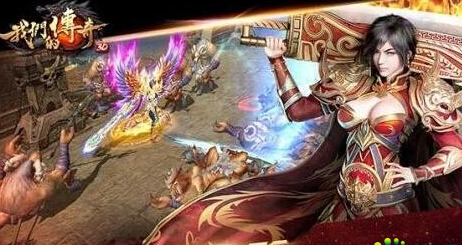电信新开1.76复古传奇发布网站
荆棘开区网
- admin 2024年9月15日0
Xinkaichuanqi: A Deep Dive into the New Wave of Chinese Literature
Xinkaichuanqi, or "New Beginning" literature, has emerged as a significant genre in contemporary Chinese writing. It encapsulates the essence of modern Chinese life—its rapid transformations, cultural shifts, and the tension between tradition and modernity. This article aims to explore the origins, characteristics, and impact of xinkaichuanqi on the broader landscape of Chinese literature.
Understanding Xinkaichuanqi
The term xinkaichuanqi can be broken down into its components: "xin" meaning "new," "kai" meaning "beginning," and "chuanqi" which translates to "legend" or "tale." Together, these terms signify a movement that seeks to reimagine the narratives of Chinese society through fresh perspectives. This new literary wave showcases the creativity and resilience of contemporary Chinese writers who are eager to express the nuances of modern existence.
As China continues to evolve, so does its literature. Xinkaichuanqi reflects the challenges and opportunities faced by individuals navigating a rapidly changing world. Writers in this genre delve into themes such as urbanization, globalization, identity, and the environment. Their works often feature characters struggling to find their place in society while grappling with the remnants of traditional values and the pressures of modern life.

One notable figure in xinkaichuanqi literature is Wang Anyi, whose writings capture the essence of urban life in Shanghai. She elegantly portrays the lives of ordinary people and their aspirations amidst the backdrop of a bustling metropolis. Similarly, authors like Ge Fei and Han Dong explore the depths of personal relationships and societal expectations, bridging the gap between the past and future through their poignant storytelling.
Xinkaichuanqi is distinguished by its varied narrative styles and innovative techniques. Many authors incorporate elements of magic realism, allowing for the blurring of reality and fantasy. This stylistic choice not only enhances the emotional depth of the stories but also provides insight into the surreal aspects of modern life in China, where traditional beliefs often clash with contemporary practices.
The Role of Xinkaichuanqi in Contemporary Society
The rise of xinkaichuanqi coincides with a renewed interest in literature among younger generations in China. As more people engage with written works, there is an increasing demand for stories that resonate with personal experiences and societal challenges. The xinkaichuanqi genre serves this purpose, fostering a connection between readers and the narratives that reflect their realities.
Moreover, xinkaichuanqi plays a crucial role in promoting cultural exchange. As these stories gain international recognition, they contribute to a larger understanding of Chinese culture and its complexities. Translations of xinkaichuanqi works allow global readers to engage with the rich tapestry of modern Chinese life, fostering empathy and insight across cultural divides.
In the digital age, the dissemination of xinkaichuanqi literature has also taken on new forms. Social media and online platforms have become vital spaces for emerging writers to share their works and gain visibility. This democratization of literature allows for a diverse range of voices to be heard, enriching the literary landscape and encouraging innovative expressions of creativity.
As xinkaichuanqi continues to evolve, it is essential to appreciate its contributions to both Chinese literature and the global literary community. It encapsulates not only the struggles of a society in flux but also the resilience of its people, who strive to carve out their identities amidst change. The genre serves as a mirror reflecting the complexities of modern life, inviting readers to contemplate the multi-faceted nature of their own experiences.
In conclusion, xinkaichuanqi represents a vibrant and essential part of contemporary Chinese literature. With its focus on modern realities, innovative storytelling, and cultural significance, it is poised to leave a lasting impact not only within China but also on the world stage. As readers engage with these new narratives, they embark on a journey that transcends borders and unites them in shared human experiences.
文章内容页下在线分享
Xinkaichuanqi: A Deep Dive into the New Wave of Chinese Literature
Powered By 2020-2025 Theme By 网站地图
评论列表: